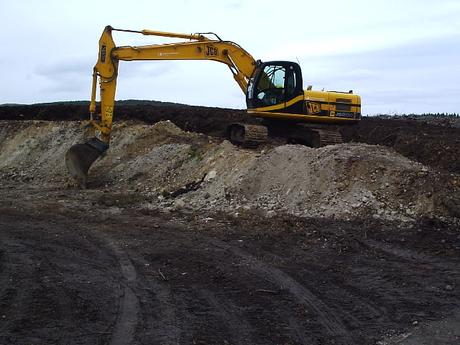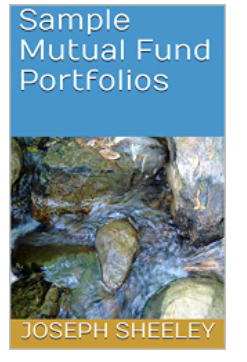
A New Forestry Road by Donald H Bain is licensed under CC-BY-SA 2.0
" data-orig-size="640,480" sizes="(max-width: 640px) 100vw, 640px" data-image-title="A New Forestry Road" data-orig-file="https://smallivy.com/wp-content/uploads/2023/08/057569_6384912b.jpg" data-image-description="OLYMPUS DIGITAL CAMERA
" class="wp-image-23430" width="640" data-medium-file="https://smallivy.com/wp-content/uploads/2023/08/057569_6384912b.jpg?w=300" role="button" data-permalink="https://smallivy.com/2024/08/11/bobs-backhoes/olympus-digital-camera-22/" alt="" height="480" srcset="https://smallivy.com/wp-content/uploads/2023/08/057569_6384912b.jpg 640w, https://smallivy.com/wp-content/uploads/2023/08/057569_6384912b.jpg?w=150&h;=113 150w, https://smallivy.com/wp-content/uploads/2023/08/057569_6384912b.jpg?w=300&h;=225 300w" data-image-meta="{"aperture":"6","credit":"","camera":"C160,D395","caption":"OLYMPUS DIGITAL CAMERA","created_timestamp":"1127566456","copyright":"","focal_length":"5","iso":"50","shutter_speed":"0.007","title":"OLYMPUS DIGITAL CAMERA","orientation":"1"}" data-large-file="https://smallivy.com/wp-content/uploads/2023/08/057569_6384912b.jpg?w=640" tabindex="0" />A New Forestry Road by Donald H Bain is licensed under CC-BY-SA 2.0Once upon a time there was a man named Steve. Steve would spend all day on his hands and knees digging in the ground with a stick he found. He did this to create puddles that would collect the rain so that he had water to drink. He would also keep a puddle of two to play in. There was one he would regularly expand so that it would collect more water and he could have a bigger play/soaking area. He would also expand the drinking puddles and create new ones since sometimes it would take a while between rains and other times one of his puddles would get contaminated by animals.
This was very hard work. His hands would get blistered and chapped, eventually becoming hard as rocks from the calluses that built up. He would get sun burned from being out in the hot sun all day. His nails were always filled with dirt and he would lose one occasionally from scraping at the dirt or trying to remove a rock that he encountered.
Despite all of his hard work, it seemed like Steve couldn’t really get ahead. He had just enough to live and a little for recreation, but it seemed like he was always needing to dig because the animals would foul up his puddles. He couldn’t relax much because he needed to spend most of his time working on new puddles or cleaning out old ones just to keep up. Still, he was able to generally spend his weekends free, lounging in one of his puddles, and he could usually stop an hour or two before sundown, so it was worth it to keep up the digging. Besides, what choice did he really have?
Most other people in Steve’s village spent their time digging puddles, too. In fact, most people spent most of their time digging in the dirt with sticks. Some people had found better sticks, letting them dig a bit faster and letting them either have deeper puddles or get done a little faster and do other things, but still most people spent most of their time digging.

(Note, if you click on a link in this post and buy something from Amazon (even if you buy something different from where the link takes you), The Small Investor will receive a small commission from your purchase. This costs you nothing extra and is the way that we at The Small Investor are repaid for our hard work, bringing you this great content. It is a win-win for both of us since it keeps great advice coming to you (for free) and helps put food on the table for us. If you don’t want to buy something from Amazon or buy a book, how about at least telling your friends and family about our website as a great place to learn about investing and personal finance. Thanks!)
Water Taxes
Because there were other tribes around who would steal water as well as wild animals that were a threat, the villagers had established a guard. Since the guards were busy guarding and therefore unable to dig their own puddles to gather water, the villagers would each provide the guards with water to drink in exchange for them spending their time guarding the village. This water that they would provide to the guards became known as the “water tax.” Each villager would provide the same amount of water to the guards since they each received the same service from them. Of course, the villagers didn’t want to give up some of their hard-earned water, but they knew that without the guards, their water would just be taken. It was a necessary evil. Still, they tried to minimize the amount paid to the guards as much as they could.

My new mini-book is available for just $2.99. Order your copy today!
Bob’s Backhoe
Across the village, a man named Bob also spent all day digging puddles with sticks. Unlike Steve, however, Bob sent his nights working in his garage. Everyone thought he was crazy for not spending his evenings relaxing like they did. Some would tease him, talking about how they were lounging while he toiled away in his garage. Others would beg him to come lounge with them, saying he was wasting his life. But Bob would go into his garage every night after he finished digging puddles for the day and stay there until it was time for him to go to bed. Sometimes he would get up early and spend time in his garage before digging puddles, too.
One day Bob opened his garage and revealed a large, yellow backhoe. To everyone’s amazement, he started it up and rolled it out of the garage and into his back yard. He started digging along the back of his property with the large shovel. In five minutes, he had dug a puddle as large as people would spend a year digging with sticks. Then he made a hole large enough to supply all of the water he needed. After that, in a couple of days he had dug a large pond and a trough to a nearby creek so that it filled the pond up for him. Bob had time afterwards to go get fish to stock his pond, then would often spend time fishing in the afternoons.
Bob then started going around to different houses and digging ponds for them in exchange for a portion of the water collected. He would trade some of the water he collected to others and in turn they would do things for him like help him make his house bigger and grow food for him. He would also have people make more backhoes for him in exchange for ponds and cisterns. Soon he had a fleet that he would rent out to the villagers in exchange for some of the water they produced. The lives of everyone improved since now they had access to a tool that would let them accomplish many weeks worth of work with a stick in a single day. Soon, everyone in the village had fish ponds and swimming pools.

SmallIvy Book of Investing: Book 1: Investing to Become Wealthy
Envy sets in
Even though everyone was better off, not everyone was happy. Some people looked at Bob’s home and cars, the size of his swimming pool, and other things he had because of his backhoe business and were envious. They also looked at how much water was going to him from other villagers, making it so that Bob didn’t even need to do any digging himself and he still had way more water than he could possibly use.
“How is it fair that he has all of this water that he doesn’t even need to work for? And why does he pay the same water tax as us when he has so much more water to guard? He should be paying a lot more since he has so much. Think of the things we could do if we had all of that water.”
“And why does he get to just have those backhoes when others are still digging with sticks? Think of the good we could do if we had those backhoes instead of letting him keep them. Is it even right for him to charge people to do something as fundamental for their lives as digging for water?”
So, the villagers devised a plan. They changed the water tax where any water gathered under 100 gallons per week was tax free. Anything over 100 gallons per week was taxed at 10%. They also created a law requiring anyone who has a backhoe to provide it to the village on the first two days of each week so that the village elders could provide it to those poor in water to use to dig ponds.
The tax is imposed
So the tax was created. Bob bristled at the tax at first, but then he decided it wasn’t worth changing things over, so he continued the same way, paid his taxes, and went on with his life. He also dutifully provided his backhoes on Monday and Tuesday to the city who loaned them out to citizens who wanted to dig and who the city deemed as sufficiently “water poor.” These backhoes often came back broken because the people who borrowed them did not know how to use them and treated them badly. (Bob would train those who he loaned them to and there was a charge for any repairs if they came back broken, but the city just loaned them out without any training on Monday and Tuesday since it wasn’t their equipment and they didn’t care.)
Others, however, didn’t accept the tax as kindly as Bob. Some of the people making more than 100 gallons per week lied about the amount of water they produced to reduce or eliminate the taxes they were paying. Others were more honest, but they would cut back on how much water they made to just under the 100 gallons per week limit. They figured that the work they put in to generate the first 100 gallons was tax-free, but they had to pay taxes for the next water produced, so they’d rather avoid the taxes.
As people cut back on their water production, they rented the backhoes from Bob less. Many people decided it wasn’t worth the expense given that it would just produce taxed water. The reluctance of people to produce water beyond the limit also caused the city to collect less than the amount of water taxes they were expecting. The 10% number was expected to be enough to pay the guards, but the city found that they weren’t collecting enough, so they needed to dig into their reserves from time-to-time.
Taxes are raised
To be able to cover expenses, the village decided to raise the tax rate to 20%, figuring this will be enough to both cover the guards and buy some things they were wanting. But they found that people would produce even less water when taxes were at 20%. They the raised taxes to 30%, then 40%. Eventually taxes were raise to 90%.
At 50%, Bob stopped digging for water, figuring he was making more than he needed anyway and he got no benefit from digging more. It was all just taken from him anyway. He still rented out his backhoes to people, but fewer and fewer rented them as taxes were raised.
The people were livid. Many had never dug holes at all, getting free water from the city water taxes, but now there was very little water being produced, so there was not enough water to go around. Mobs started to riot. Others would poison ponds that others had with animal feces and other contaminants.
An emergency meeting
The city called an emergency meeting, fearful for their lives. They voted to confiscate all of Bob’s backhoes and give them out to the mobs causing problems. Bob, having no choice, turned his backhoes over to the city. The mobs took the backhoes and tried to dig ponds, but had no idea what they were doing. They quickly broke all of the equipment.
The crowd gathered together and marched to Bob’s house. They would demand that he fix the backhoes and then dig wells for them. When they got there, they found all of Bob’s ponds filled and that Bob was gone. He had quietly left after turning over the backhoes. On his door was a note:
“You could have had all of the water you needed through fair trade. Instead you decided to steal it through the power of government taxes. You now have backhoes you don’t know how to use or repair. Good luck.”
(For ways to increase your free cash flow and use it to build wealth, check out FIREd by Fifty, How to Generate the Cash Flow You Need to Retire Early.)
.
To ask a question, email [email protected] or leave the question in a comment.
Disclaimer: This blog is not meant to give financial planning advice, it gives information on a specific investment strategy and picking stocks. It is not a solicitation to buy or sell stocks or any security. Financial planning advice should be sought from a certified financial planner, which the author is not. All investments involve risk and the reader as urged to consider risks carefully and seek the advice of experts if needed before investing.
